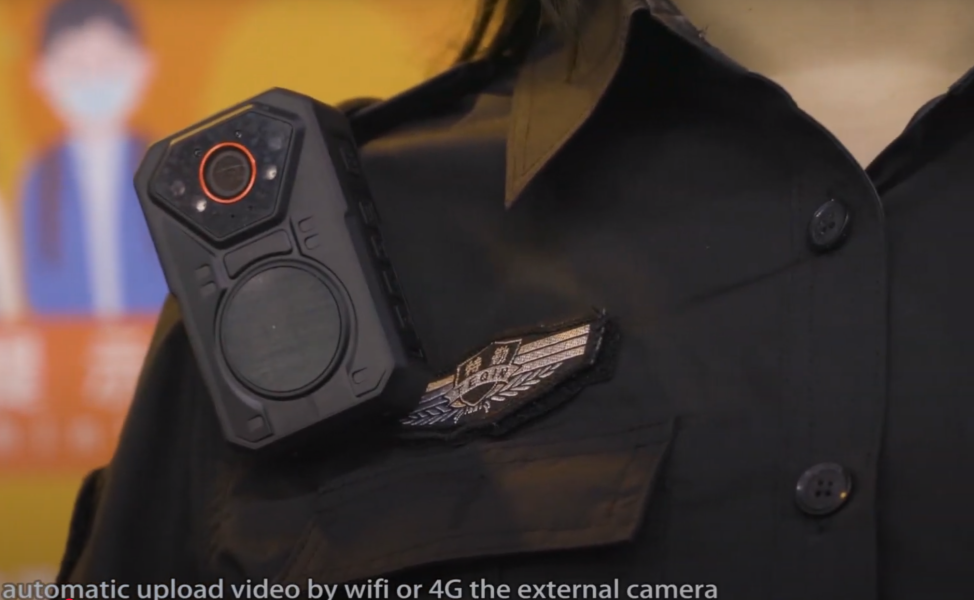In 2025, the mandate for New South Wales (NSW) police officers to activate body-worn cameras (BWCs) has ignited a critical debate: How can law enforcement agencies uphold public accountability without eroding individual privacy? As surveillance technologies evolve, the tension between transparency and data protection has become a defining challenge. RECODA, a global leader in secure law enforcement solutions, offers a framework to navigate this complexity through its GDPR-inspired evidence chain management and privacy-centric innovations.

The NSW watchdog’s recommendation stems from a global trend toward policing transparency. BWCs serve as impartial witnesses in contentious scenarios, from arrests to public interactions, reducing disputes over officer conduct. RECODA’s M505B BWC series, deployed in European and Asian agencies, exemplifies this mission:
Real-Time 4G Streaming: Supervisors can monitor live feeds during critical incidents, enabling rapid decision-making while maintaining an encrypted audit trail.
Tamper-Proof Metadata: Each video file embeds timestamps, GPS coordinates, and officer IDs using blockchain-like hashing, ensuring courtroom admissibility.
AI-Driven Incident Tagging: Algorithms automatically flag footage involving use-of-force or citizen complaints, streamlining internal reviews by 40%.
Yet, these benefits hinge on a controversial premise: constant surveillance as a public good.
While BWCs enhance accountability, they risk normalizing mass surveillance. The EU’s General Data Protection Regulation (GDPR) provides a blueprint for mitigating privacy harms—principles that RECODA integrates into its systems:
GDPR mandates collecting only “necessary” data. RECODA's Selective Recording Mode allows officers to pause recording during non-operational moments (e.g., rest breaks), reducing unnecessary footage.
Automated Redaction Tools: Post-incident, AI blurs bystander faces and anonymizes license plates, balancing evidentiary value with privacy.
GDPR requires deleting data once its purpose expires. RECODA's VMMS Software enforces customizable retention policies (e.g., 30 days for routine patrols, 2 years for ongoing cases).
Role-Based Permissions: Prosecutors, internal auditors, and external watchdogs access footage through tiered authorization, preventing misuse.
RECODA's Citizen Portal lets individuals request access to footage involving them, mirroring GDPR's “right to explanation.”

NSW's mandate demands technologies that harmonize legal rigor with ethical pragmatism. RECODA’s solutions, refined through EU deployments, offer three transformative strategies:
Unlike rigid systems, RECODA's AI-Powered Retention Engine classifies footage by context:
Low-Risk Interactions (e.g., traffic stops): Auto-delete after 30 days.
High-Risk Scenarios (e.g., arrests): Retain for 2+ years with encryption.
This approach aligns with GDPR’s proportionality principle while preserving critical evidence.
Centralized databases are vulnerable to breaches. RECODA's Edge Computing BWCs process and encrypt data locally, uploading only metadata to the cloud. This reduces exposure to cyberattacks—a growing concern for NSW agencies.
RECODA's algorithms undergo biannual Bias Audits to prevent discriminatory tagging (e.g., over-flagging footage from marginalized communities). NSW could adopt this model to preempt AI-driven inequities.
While RECODA’s technologies mitigate privacy risks, BWCs alone cannot resolve deeper issues in policing. Over-reliance on surveillance risks two pitfalls:
Performative Transparency: Footage may be weaponized to justify questionable practices unless paired with independent oversight.
Officer Resistance: NSW police might disable cameras in “gray zones” (e.g., mental health crises) unless cultural training accompanies tech rollouts.
RECODA's Training Simulators, which use historical BWC footage to rehearse ethical dilemmas, offer a path forward—but only if NSW invests in holistic reform.
To reconcile accountability and privacy, NSW should adopt a RECODA-informed roadmap:
Legislative Alignment: Enact GDPR-style laws mandating BWC data minimization and civilian access rights.
Third-Party Audits: Certify BWC systems against standards like RECODA’s EU-SafeCam label, ensuring GDPR/ISO compliance.
Public-Private Partnerships: Collaborate with RECODA to pilot 5G-enabled BWCs with real-time redaction, addressing rural connectivity gaps.
The NSW BWC mandate marks a pivotal step toward modern policing—but its success hinges on balancing RECODA's cutting-edge safeguards with societal vigilance. As RECODA's EU clients have shown, technology can mediate the accountability-privacy clash, but only when embedded in a framework of trust, equity, and adaptive governance. In 2025, the true test for NSW lies not in camera activation rates, but in its commitment to wield surveillance as a scalpel, not a sledgehammer.
Explore RECODA’s BWC Solutions: [RECODA Law Enforcement Technologies].